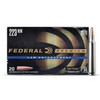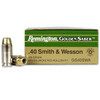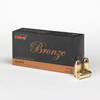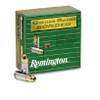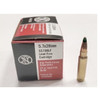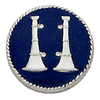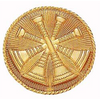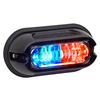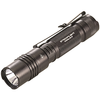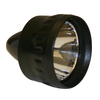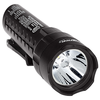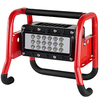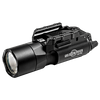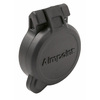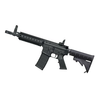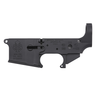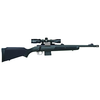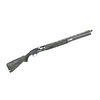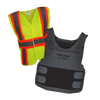YOUR DOGS BARKING AFTER A LONG SHIFT? IT COULD BE YOUR BOOTS
Posted by Robert Avsec on Mar 25th 2024
Firefighters are at elevated risk for overuse injuries to the feet and ankles. Such overuse injuries could be the result of flat feet, fallen arches or improperly fitting footwear(e.g., structural firefighting boots).
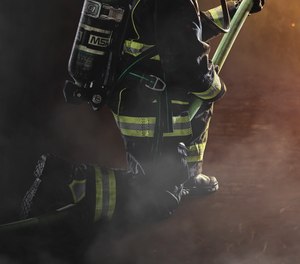
Firefighters are also subject to foot pain because of the amount of walking, running, and climbing they do regularly as part of their duties. What firefighter’s “dogs” (feet) haven't been “barking” (hurting) when they return to the fire station after spending several hours working in their structural firefighting boots.
A COMMON CAUSE OF FOOT PAIN
Plantar fasciitis is one of the most common causes of heel pain and its source is the inflammation of a thick band of tissue that runs across the bottom of your foot and connects your heel bone to your toes (the plantar fascia).
Most plantar fasciitis sufferers experience a stabbing pain that usually occurs with their first steps in the morning. Once up and moving around, the pain normally decreases, but it might return after prolonged periods of standing, walking, running, or when standing up after sitting for a period.
Though an individual can develop plantar fasciitis without an obvious cause, there are some factors that can increase your risk of developing this condition including, but not limited to, the following:
- Age. Plantar fasciitis most commonly affects individuals between the ages of 40 and 60.
- Certain types of exercise. Activities that place a lot of stress on your heel and attached tissue (e.g., long-distance running or walking) can contribute to the onset of plantar fasciitis.
- Foot mechanics. If an individual has flat feet, a high arch, or even an abnormal pattern of walking it can affect the way weight is distributed when they’re standing and can put added stress on the plantar fascia.
- Obesity. Excess pounds put extra stress on your plantar fascia.
- Occupations that keep you on your feet. Factory workers, teachers and others who spend most of their work hours walking or standing on hard surfaces can damage the plantar fascia. Sounds like a firefighter walking around in their structural firefighting boots on an emergency scene or on concrete floors back at the fire station, no?
PREVENTING PLANTAR FASCIITIS
First is taking note of those five previously mentioned causes and taking appropriate action where necessary. Here are four additional preventative actions that can help reduce the risk of developing plantar fasciitis:
- Research shows that bothstrengthening and stretching exercise programs, including stretching the Achilles tendon, can significantly reduce pain and improve walking in people with plantar fasciitis. Firefighters should use these strengthening and stretching exercises after physical training and after they’ve spent considerable time working in their structural firefighting boots.
- Wear the proper footwear and orthotics for your activities
- Learn the acronym R-I-C-E—Rest, Ice, Compression (using an elastic bandage wrap), and Elevation (of the affected area) to decrease inflammation of the plantar fascia.
- Visit a foot care specialist at the first sign of foot pain to get an evaluation to see what’s causing the pain (I did this after experiencing a couple of episodes of plantar fasciitis and learned that I needed fitted orthotics because my arches were flattening out because I was 52 years old—a common occurrence).
GOOD STRUCTURAL FIREFIGHTING BOOTS CAN MAKE A DIFFERENCE
The introduction of leather structural firefighting boots, and hybrid boots using leather and aramid fabrics (e.g., Kevlar, Nomex, PBI blended fabrics), has made a significant difference in the comfort and wearability of those boots on emergency scenes. MSA's Globe products has been on the forefront of this evolution in structural firefighting boots with its line of Athletic Footwear for Firefighters (because aren’t firefighters tactical athletes?).
MSA’s comprehensive line of Globe Athletic Footwear for Firefighters includes six models that give firefighters—both men and women ─ structural firefighting boot options that are not only comfortable and durable, but affordable as well.
- SUPRAFLEX 14"
- SUPRALITE 14"
- SUPREME 14" (A Firefighter's Choice selection at TheFireStore)
- SHADOW XF 14"
- ONYX 13"
- STRUCTURAL 12"
All Globe structural firefighting boots are compliant with NFPA 1971 (Structural Fire Fighting) and NFPA 1992 (Liquid Splash).
The table below provides a quick features comparison between these six models in MSA’s line of Globe structural firefighting boots:
| FEATURES | SUPRAFLEX 14” | SUPRALITE 14” | SUPREME 14” | SHADOW XF 14” | ONYX 13” | STRUCTURAL 12” |
|---|---|---|---|---|---|---|
| Women’s Sizes | Yes | Yes | Yes | Yes | Yes | Yes |
| Composite Puncture Barrier | Yes | Yes | Yes | Yes | Yes | Yes |
| Vibram Arctic Grip Option | Yes | Yes | Yes | Yes | Yes | No |
| High Visibility Trim | Yes | Yes | Yes | Yes | No | No |
| Made In USA | Yes | Yes | Yes | Yes | Yes | Yes |
| Kevlar Blend Shield | Yes | Yes | Yes | Yes | No | Yes |
| Outer Materials | Leather DRAGONHIDE fabric | Leather DRAGONHIDE fabric | Leather DRAGONHIDE fabric | Leather DRAGONHIDE fabric | Leather | Leather |
| Wide Calf Model in All Sizes | Yes | Yes | Yes | Yes | No | No |
| Vibram Toe Bumper | Yes | Yes | Yes | Yes | Yes | Yes |
| Shin Protection | Foam padding | Padded composite shin guard | Padded composite shin guard | Padded composite shin guard | Padded composite shin guard | No |
| Vibram Contoured Cup Outsole | Yes | Yes | Yes | Yes | Yes | Yes |
| GORE CROSSTECH Footwear Fabric | Yes | Yes | Yes | Yes | Yes | Yes |
| Pull On | Yes | Yes | Yes | Yes | Yes | No (Lace up) |
| Height |
All the great qualities, as described above, are available in sizes 5-12 and widths of Medium, Wide and Extra Wide.
Regardless of your choice of Globe structural firefighting boots, you can be assured that the boots you put on your feet are going to be good to your feet, no matter how much walking or climbing you must do on the emergency scene. As discussed earlier in this piece, having the proper footwear is a key factor in preventing plantar fasciitis. And it will keep your “dogs” from “barking!”
 Globe Shadow XF 14" Pull-On Structural Fire Boot
Globe Shadow XF 14" Pull-On Structural Fire Boot
 Globe Men's Shadow XF 14" Pull-On Structural Fire Boot With Wide Calf And Arctic Grip Sole
Globe Men's Shadow XF 14" Pull-On Structural Fire Boot With Wide Calf And Arctic Grip Sole
 Globe Shadow XF 14" Pull-On Structural Fire Boot With Arctic Grip Sole
Globe Shadow XF 14" Pull-On Structural Fire Boot With Arctic Grip Sole
 Globe Men's Shadow XF 14" Pull-On Structural Fire Boot With Wide Calf
Globe Men's Shadow XF 14" Pull-On Structural Fire Boot With Wide Calf
 Globe Men's 10" Station/Wildland Boots, NFPA 1977, Black
Globe Men's 10" Station/Wildland Boots, NFPA 1977, Black
 Globe Men's 10" Quad-Certified Boot
Globe Men's 10" Quad-Certified Boot
 Globe Women's Shadow XF 14" Pull-On Fire Structural Boot With Arctic Grip Sole
Globe Women's Shadow XF 14" Pull-On Fire Structural Boot With Arctic Grip Sole
 Globe Women's Shadow XF 14" Pull-On Fire Structural Boot With Wide Calf
Globe Women's Shadow XF 14" Pull-On Fire Structural Boot With Wide Calf
 Globe Women's Shadow XF 14" Pull-On Fire Structural Boot With Wide Calf And Arctic Grip Sole
Globe Women's Shadow XF 14" Pull-On Fire Structural Boot With Wide Calf And Arctic Grip Sole
 Globe Women's SUPRALITE 14" Pull-On Structural Firefighting Boot
Globe Women's SUPRALITE 14" Pull-On Structural Firefighting Boot
 Globe Men's SUPRALITE 14" Pull-On Structural Firefighting Boot
Globe Men's SUPRALITE 14" Pull-On Structural Firefighting Boot
 Globe Women's Shadow XF 14" Pull-On Fire Structural Boot
Globe Women's Shadow XF 14" Pull-On Fire Structural Boot
 Globe Women's 10" Station/Wildland Boots, NFPA 1977, Black
Globe Women's 10" Station/Wildland Boots, NFPA 1977, Black
 Globe Women's Onyx 13" Pull-On Boots
Globe Women's Onyx 13" Pull-On Boots
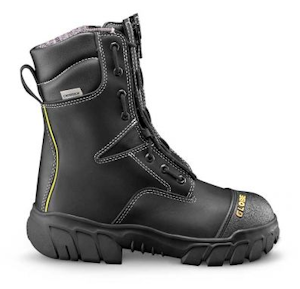 Globe Men's 10" Quad-Certified Technical Boot
Globe Men's 10" Quad-Certified Technical Boot
 Globe Women's 10" Quad-Certified Technical Boots
Globe Women's 10" Quad-Certified Technical Boots
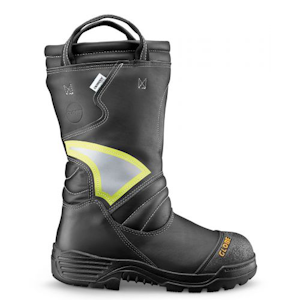 Globe Men's Supreme 14" Structural Fire Boot
Globe Men's Supreme 14" Structural Fire Boot
 Globe Men's SUPRALITE 14" Pull-On Structural Firefighting Boot
Globe Men's SUPRALITE 14" Pull-On Structural Firefighting Boot
 Globe Men's 12" Structural Zipper Speed Lace Fire Boot, NFPA
Globe Men's 12" Structural Zipper Speed Lace Fire Boot, NFPA
 Globe Men's 13" Onyx Pull-On, NFPA 1971, 1992
Globe Men's 13" Onyx Pull-On, NFPA 1971, 1992
 Globe Women's Supreme 14" Pull-On Structural Boot
Globe Women's Supreme 14" Pull-On Structural Boot
 Globe Yarn Composition Socks
Globe Yarn Composition Socks
 Globe Guard Particulate Hood
Globe Guard Particulate Hood
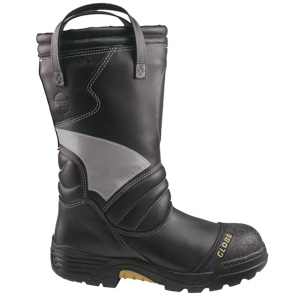 Globe Structural-Proximity, 14" Leather Pull-On Boot, NFPA 1971, 1992
Globe Structural-Proximity, 14" Leather Pull-On Boot, NFPA 1971, 1992
 Globe Men's 13" Onyx Pull-On Boots
Globe Men's 13" Onyx Pull-On Boots
 Globe Shadow XF 14" Pull-On Structural Fire Boot
Globe Shadow XF 14" Pull-On Structural Fire Boot
 Globe Men's Shadow XF 14" Pull-On Structural Fire Boot With Wide Calf And Arctic Grip Sole
Globe Men's Shadow XF 14" Pull-On Structural Fire Boot With Wide Calf And Arctic Grip Sole
 Globe Shadow XF 14" Pull-On Structural Fire Boot With Arctic Grip Sole
Globe Shadow XF 14" Pull-On Structural Fire Boot With Arctic Grip Sole
 Globe Men's Shadow XF 14" Pull-On Structural Fire Boot With Wide Calf
Globe Men's Shadow XF 14" Pull-On Structural Fire Boot With Wide Calf
 Globe Men's 10" Station/Wildland Boots, NFPA 1977, Black
Globe Men's 10" Station/Wildland Boots, NFPA 1977, Black
 Globe Men's 10" Quad-Certified Boot
Globe Men's 10" Quad-Certified Boot
 Globe Women's Shadow XF 14" Pull-On Fire Structural Boot With Arctic Grip Sole
Globe Women's Shadow XF 14" Pull-On Fire Structural Boot With Arctic Grip Sole
 Globe Women's Shadow XF 14" Pull-On Fire Structural Boot With Wide Calf
Globe Women's Shadow XF 14" Pull-On Fire Structural Boot With Wide Calf


